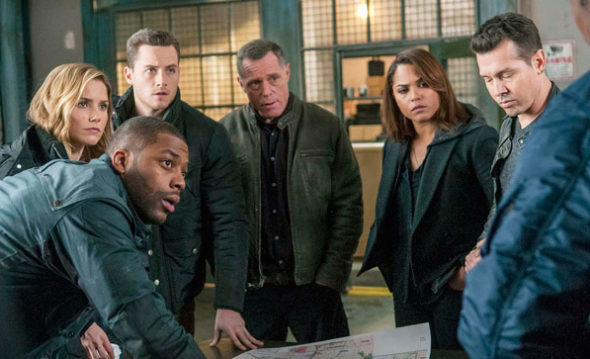
The screen faded to black, but the silence that followed in countless living rooms across the globe was anything but empty. It was a vacuum, a lingering echo of shock, disbelief, and a profound, shared understanding of what had just transpired. Chicago PD Season 11 had delivered its final blow, and for fans, the ending was not just a cliffhanger or a dramatic twist; it was a visceral gut-punch that left them, quite literally, speechless.
For eleven seasons, Chicago PD has cultivated a reputation for its gritty realism, its morally ambiguous protagonists, and its unwavering commitment to the dark, often brutal truths of police work. Viewers have invested years in the lives of Hank Voight, Hailey Upton, Adam Ruzek, Kim Burgess, and Kevin Atwater, watching them navigate not just the labyrinthine streets of Chicago, but the complex, often traumatic landscapes of their own souls. We’ve seen them love, lose, betray, forgive, and always, always fight for a semblance of justice, even if it meant blurring the lines of the law. This deep emotional wellspring is precisely why the Season 11 finale resonated with such devastating force. It wasn’t just a show; it was a family, and the ending felt like a fracture within its very core.
The precise moment of impact varied from fan to fan, a mosaic of personal anticipation and dread. Perhaps it was the final, agonizing shot of a beloved character’s face, etched with a pain so profound it transcended the screen. Maybe it was the cold, sudden thud of a decision made, a line crossed, that irrevocably altered the moral fabric of the Intelligence Unit. Or, most potently, it could have been the gut-wrenching realization that a narrative thread, spun painstakingly over seasons, had been severed with an abrupt, chilling finality, leaving behind a void that no casual viewing could fill. Whatever the specific catalyst, the effect was universal: a stunned hush, a collective intake of breath, and then, the frantic, almost desperate urge to connect with others who had just shared the same, shattering experience.
The digital realm immediately lit up, but not with the usual flurry of immediate reactions and quick takes. Instead, there was a momentary, pervasive quiet, a testament to the shock. Then, the dam broke. Forums exploded, social media feeds became a torrent of caps-locked exclamations, heartbroken emojis, and desperate pleas for clarification or denial. “NO. JUST NO.” “I CAN’T BELIEVE WHAT I JUST SAW.” “Are you kidding me right now?!” These weren’t just comments; they were cries of anguish, fragments of a shared experience too raw to be fully articulated. Fans, who had spent years dissecting every nuance and theorizing every possible outcome, found themselves utterly bereft of words. The silence was deafening, a stark contrast to the usual post-finale buzz.
But why "speechless"? It wasn't merely surprise. Chicago PD has always dealt in high stakes and emotional devastation. The "speechless" reaction stemmed from something deeper: a perceived violation of the unwritten contract between viewer and storyteller. It felt like a betrayal of expectations, a shattering of the illusion of safety, even for characters in a dangerous profession. It suggested a level of risk-taking by the showrunners that pushed boundaries further than many had anticipated, perhaps even desired. It forced viewers to confront the stark reality that no one, no relationship, no future was truly safe within the unforgiving world of District 21. The ending didn't just conclude a season; it interrogated the very essence of the show, leaving fans grappling with its identity and their continued loyalty.
As the credits rolled and the numbness began to recede, it was replaced by a swirling vortex of questions. What now? How could the show possibly recover? What would this irreparable change mean for the characters left standing, and for the narrative arcs that had been meticulously woven over years? The Season 11 finale of Chicago PD wasn't just an episode; it was a seismic event in the show's history, a testament to its powerful hold on its audience, and a brutal reminder that even in fictional worlds, sometimes, the deepest cuts are the ones that leave you with nothing left to say. The silence it left behind spoke volumes about its impact, cementing its place as one of the most unforgettable, and unsettling, conclusions in the series' run.
